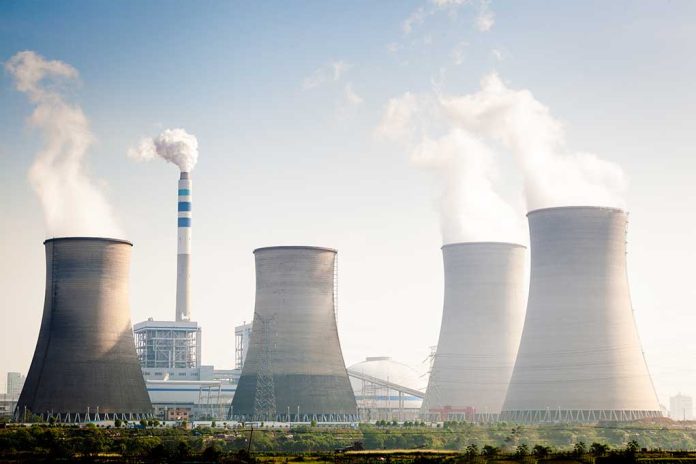
Russia extends a strategic energy lifeline to Mexico, potentially freeing the nation from dangerous dependence on U.S. natural gas supplies that left millions freezing during the 2021 Texas winter storm disaster.
Key Takeaways
- Russia has offered to supply liquefied natural gas (LNG) to Mexico, potentially reducing Mexico’s 72% dependency on U.S. natural gas imports
- Russian Energy Minister Sergey Tsivilyov proposed sharing advanced technologies for LNG production, oil extraction in challenging conditions, and refining processes
- Mexico’s state oil company Pemex, faces significant challenges with limited funding and aging infrastructure while trying to meet government production targets
- The proposal comes as Mexico plans to double its strategic gas storage by 2025-2026 after experiencing severe energy security issues during the 2021 Texas winter storm
Russia Offers Comprehensive Energy Partnership
Russian Energy Minister Sergey Tsivilyov has announced Russia’s readiness to supply liquefied natural gas (LNG) to Mexico while also sharing advanced technologies in the fuel and energy sector. The proposal, made during the St. Petersburg International Economic Forum (SPIEF), represents a potential game-changer for Mexico’s energy security landscape. Russia’s offer extends beyond mere gas supplies to include technological expertise that could revolutionize Mexico’s struggling energy sector, which has been hampered by aging infrastructure and financial constraints.
“Russia is ready to supply liquefied natural gas to Mexico, as well as share technologies in the fuel and energy sector,” said Russian Energy Minister Sergey Tsivilyov.
The Russian minister emphasized their country’s capabilities in the LNG sector, highlighting that Russian companies stand prepared to engage in comprehensive partnerships covering the entire chain of oil production, refining, transportation, and distribution. This approach addresses Mexico’s current challenges with its state oil company, Pemex, which has been struggling to meet production targets despite ambitious government goals. Russia’s advanced technologies could potentially help Mexico extract oil from difficult geological formations, a capability that would be particularly valuable for Pemex’s efforts to reactivate thousands of currently shut wells.
Mexico’s Dangerous Energy Dependency
Mexico’s current energy situation reveals dangerous vulnerabilities in its national security framework. The country imports a staggering 72% of its natural gas, with the vast majority coming from the United States. This dependency creates significant risks, as dramatically demonstrated during the 2021 Texas winter storm when supply disruptions caused widespread power outages and economic damage in Mexico. The incident exposed the precarious nature of Mexico’s energy security and highlighted the urgent need for diversification of energy sources.
“We already work with Mexico. We have perfect technologies in the area of liquefied gas. We are ready to share those technologies, ready to supply liquefied natural gas to Mexico,” said Russian Energy Minister Sergey Tsivilyov.
In response to these vulnerabilities, Mexico has begun developing plans to double its strategic gas storage capacity by 2025-2026. Russia’s offer of LNG supplies and technological cooperation arrives at a crucial moment in this planning process. While the Mexican presidency and Pemex have not yet publicly commented on Russia’s proposal, the opportunity to reduce dependence on the increasingly unreliable U.S. supply chain presents clear national security benefits that Mexico’s leadership would be foolish to ignore.
Pemex’s Production Challenges
Mexico’s state oil company, Pemex, faces substantial hurdles in meeting the government’s production target of 1.8 million barrels per day. With approximately 30,000 wells under its management, about a third remain inactive. The company has prioritized reopening wells with potential for increased output, but progress has been hampered by insufficient funding and outdated infrastructure. These challenges have made it difficult for Pemex to capitalize on Mexico’s substantial oil reserves, creating a situation where external technological assistance could prove invaluable.
“Russian companies are open to cooperation with Mexican companies, which is why we invite all interesting partners to cooperate,” said Russian Energy Minister Sergey Tsivilyov.
Russia’s offer comes during the St. Petersburg International Economic Forum, running from June 18-21 under the theme “Shared Values: The Foundation of Growth in a Multipolar World.” This theme aptly reflects the nature of the proposed energy partnership, which would contribute to creating a more balanced global energy landscape less dominated by Western interests. For Mexico, embracing Russian energy cooperation represents not just an economic opportunity but a chance to assert greater sovereignty over its energy future by reducing dependence on the United States.



